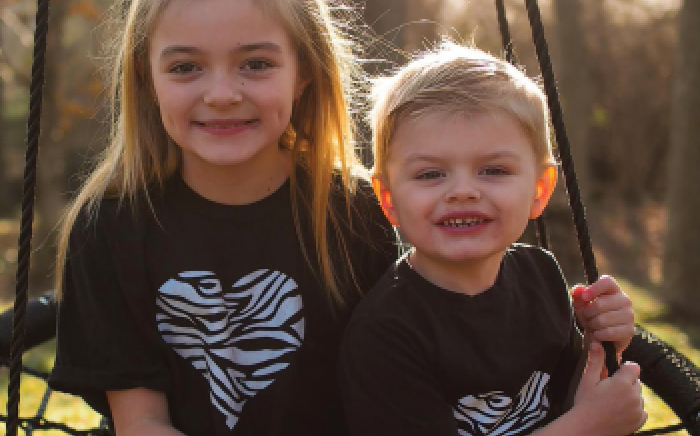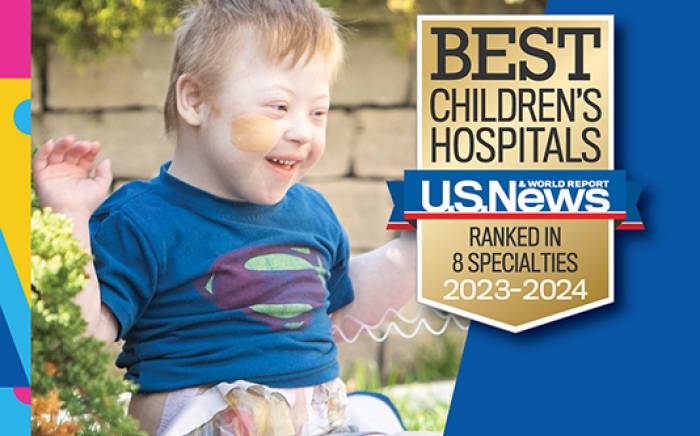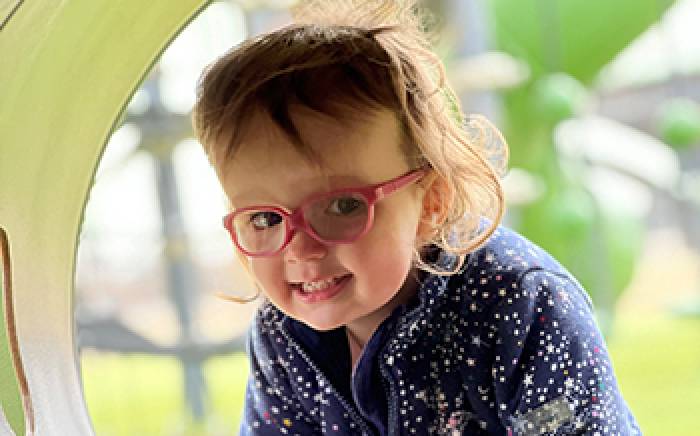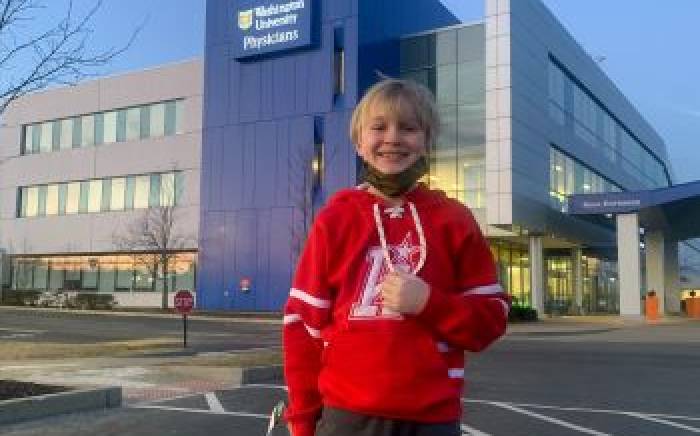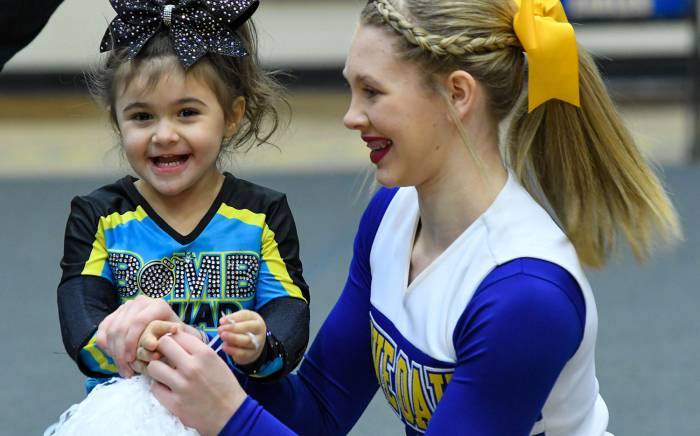In January, Joshua Webb, 13, underwent a cochlear implant at St. Louis Children’s Hospital. The surgery itself wasn’t an unusual occurrence at the hospital. The Cochlear Implant Team has an international reputation for treating hearing loss, and it has performed more than 575 pediatric cochlear implants since the mid-1980s.
 What made the procedure unlike any other was its timing. Josh’s hearing loss was caused by a tumor on his left eighth cranial (auditory) nerve, which usually would be first treated with either surgery or radiation—treatments that would result in irreversible hearing loss. Since Josh already was permanently deaf in his right ear, his doctors and audiologist thought performing the cochlear implant before treating the tumor might increase the chance of Josh hearing again—and it worked.
What made the procedure unlike any other was its timing. Josh’s hearing loss was caused by a tumor on his left eighth cranial (auditory) nerve, which usually would be first treated with either surgery or radiation—treatments that would result in irreversible hearing loss. Since Josh already was permanently deaf in his right ear, his doctors and audiologist thought performing the cochlear implant before treating the tumor might increase the chance of Josh hearing again—and it worked.
A typical progression of NF2
Josh developed tumors on his auditory nerves because he has neurofibromatosis type 2 (NF2). Ten times less common than neurofibromatosis type 1, NF2 affects approximately one in 40,000 people. Those with the disease are at a high risk for developing brain tumors; almost all develop tumors on the eighth cranial nerves that carry balance and hearing signals from the ears to the brain. The tumors are difficult to treat because they don’t grow outside the nerves but rather encompass them.
And that’s how it was for Josh. Within a year of diagnosis with NF2 in 2008, Josh underwent surgery at another medical facility to remove a tumor on his right eighth cranial nerve. In order to remove the entire tumor, the surgeon removed what remained of Josh’s auditory nerve, causing a complete loss of hearing on the right side. In addition, the surgery resulted in Josh losing the function of his balance and facial nerves on that side.
By the time Josh came to Timothy Hullar, MD, a St. Louis Children’s Hospital surgeon specializing in hearing loss and cochlear implantation, a tumor had developed on Josh’s left eighth cranial nerve and reduced his hearing in that ear. He was using a hearing aid to provide access to sound. His medical team at Children’s had decided Josh should undergo chemotherapy treatment to hopefully reduce or slow the tumor’s growth and thus preserve some of his hearing. The team includes Dr. Hullar; David Gutmann, MD, PhD, neurologist and Director of the Neurofibromatosis Center at Washington University; Michael Chicoine, MD, neurosurgeon; and Joshua Rubin, MD, PhD, pediatric oncologist.
But then December 1, 2009, came, just a week before Josh was scheduled to begin chemotherapy. That day he went to school, and he could hear. He came home profoundly deaf.
“We knew we had to regroup and decide on another course of treatment. At that point, the horse was already out of the barn in that the tumor had already destroyed Josh’s hearing,” says Dr. Hullar. “Although at first Josh took his deafness pretty well, the reality of it came home to him at Christmas. Josh’s family was together opening presents and talking, and he felt like he was in a bubble of isolation.”
Considering a new treatment alternative
In undergoing surgery on his right eighth cranial nerve, Josh had already experienced the typical treatment for patients with a tumor causing hearing loss.
“The difficulty of separating the tumor from the auditory nerve is such that some kind of nerve damage will occur. There have been cases where enough of the nerve remained to warrant trying a cochlear implant following surgery, but a wide range of outcomes have been reported—including in many cases no benefit at all,” says Dr. Hullar. “Another alternative would have been for Josh to have the surgery to remove the tumor and then undergo an auditory brain stem implant. This involves implanting electrodes into the area of the brain stem where hearing processes occur, with stimulation coming from a microphone outside the body. The results from this procedure are uniformly poor. In addition, pediatric auditory brain stem implants are not approved by the FDA in the U.S.”
These uncertainties led Dr. Hullar to recommend a new, alternative treatment to Josh and his family: leaving the tumor untreated and performing a cochlear implant.
“This wasn’t an easy decision for Josh’s family. His grandmother is a nurse, and she in particular recognized that this was a treatment option without a track record,” says Dr. Hullar. “Josh had already undergone surgery for the tumor on his right side as well as surgery to restore the functioning of his right facial nerve. I was proposing yet another surgery on his left side with the hope of success but no way of knowing for sure. In the end, however, they recognized that if the surgery was successful, it would benefit Josh not only physically but emotionally as well.”
A rapid recovery
The answer of whether or not Josh’s cochlear implant worked came on January 28, when his external device was fitted and the electrodes used to stimulate the auditory nerve for sound were activated.
“For all of our cochlear implant patients, we begin by turning on the electrodes gradually so that the nerve gets used to the new type of stimulation and the brain has time to interpret the information it is receiving. We also don’t want the sound to be so overpowering for patients that it is uncomfortable for them,” says Janet Vance, Au.D., CCC-A, pediatric audiologist with the Cochlear Implant Team. “In Josh’s case, he progressed so quickly that by the first evening he was talking on the phone—something I’ve never seen before. Within three weeks, he was able to communicate and converse without visual cues, such as lip-reading.”
Dr. Hullar attributes Josh’s ability to adapt to the implant so quickly to the relatively short period of time he was deaf. The next question for his physicians and family: How long will the implant continue to work?
“Josh and his family understand we can’t guarantee how long the implant will work because we can’t predict the tumor’s course. It could work for several months, a year or indefinitely,” says Dr. Hullar. “However, some tumors do not grow rapidly, and fortunately over the past six months Josh’s hasn’t grown at all. But at this point, we’ve seen Josh go from a pretty depressed kid back to his normal self—funny, smart and a bit sarcastic. His quality of life is vastly improved, and that was our goal.”




